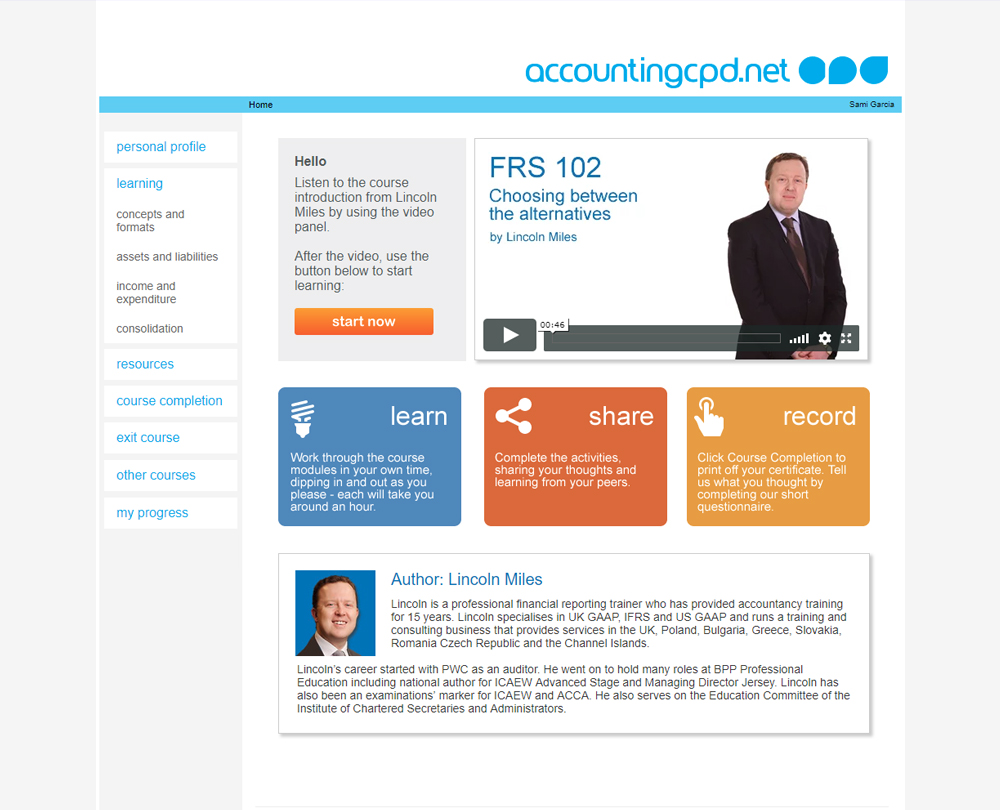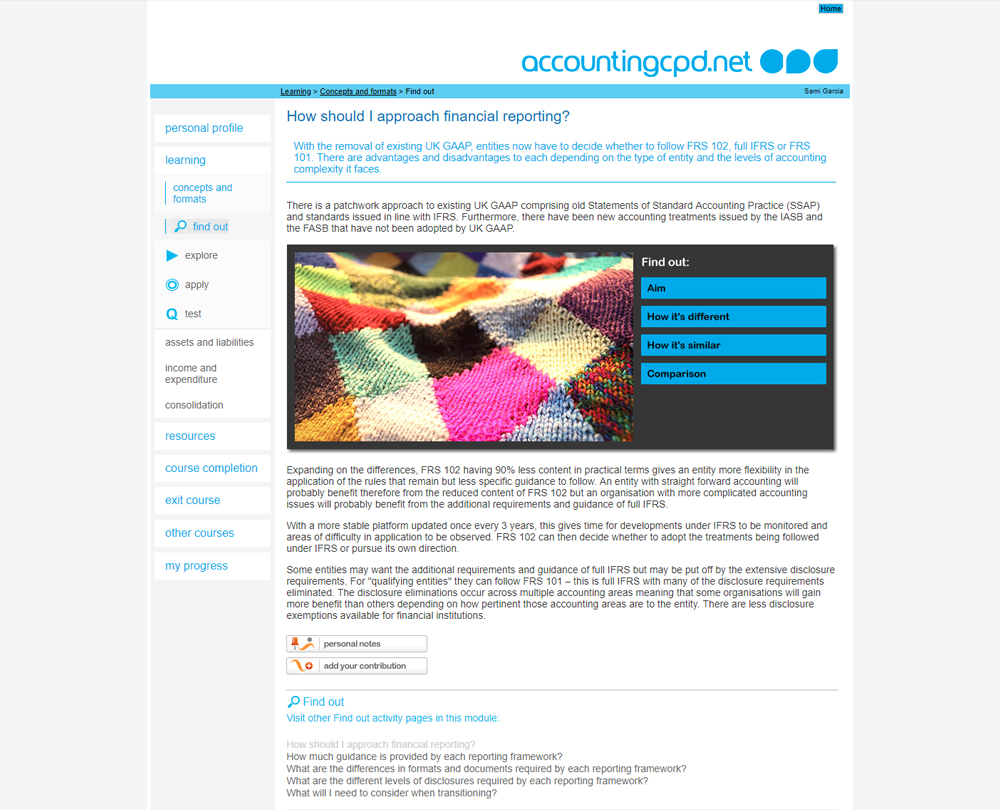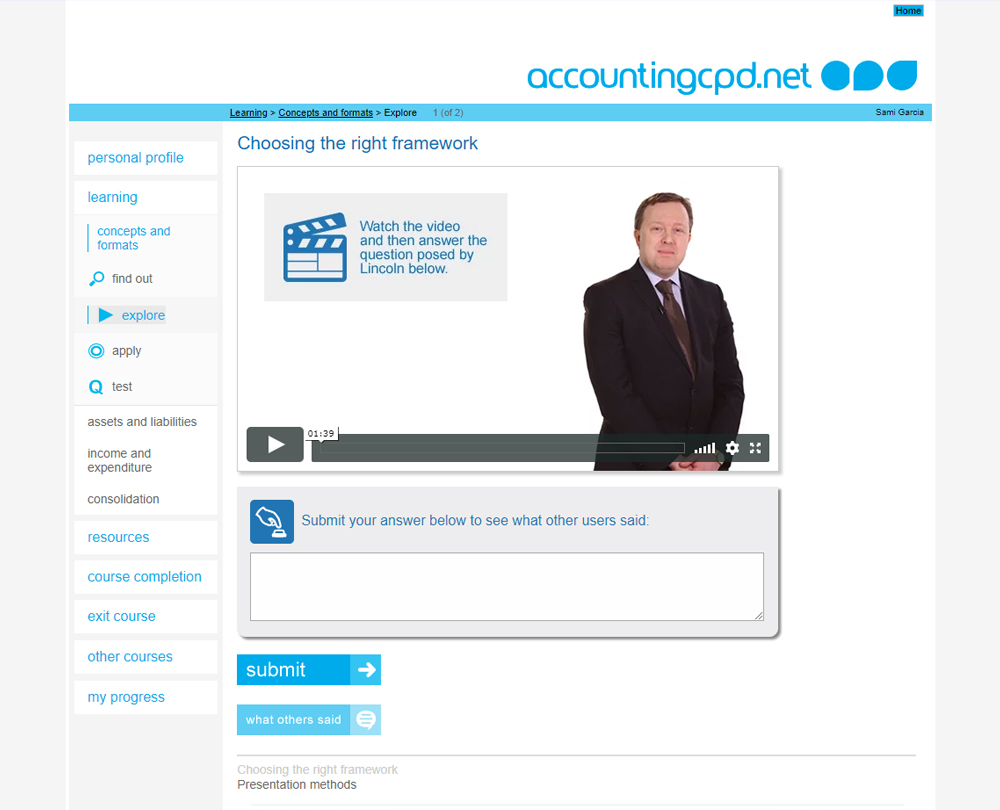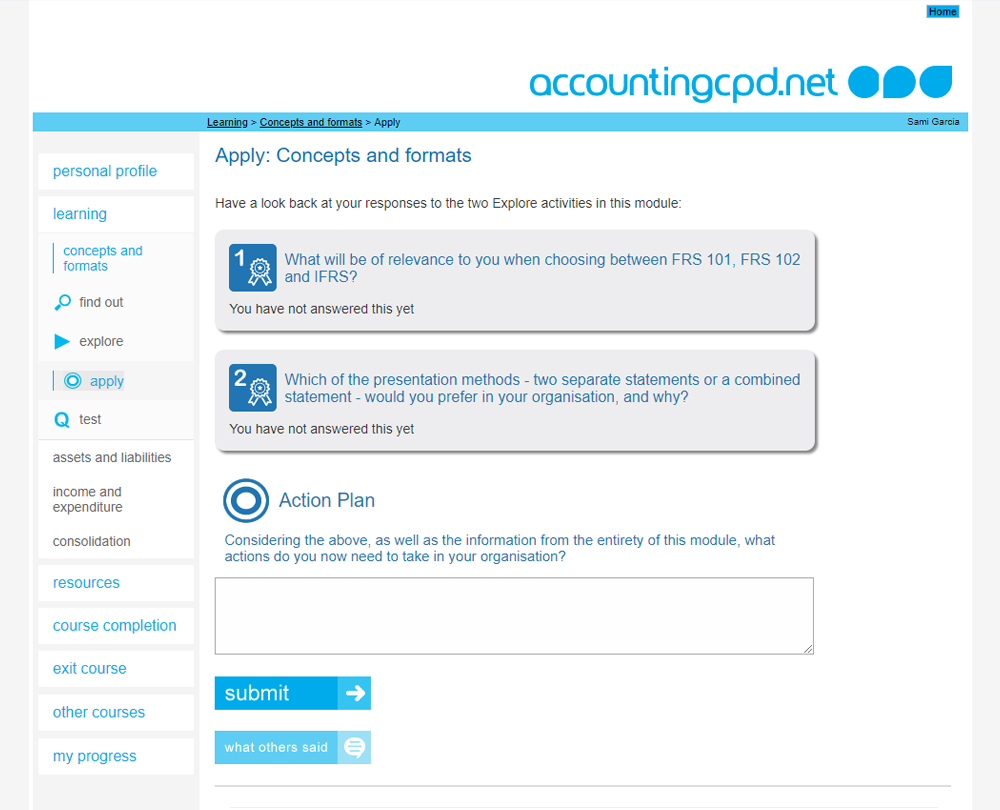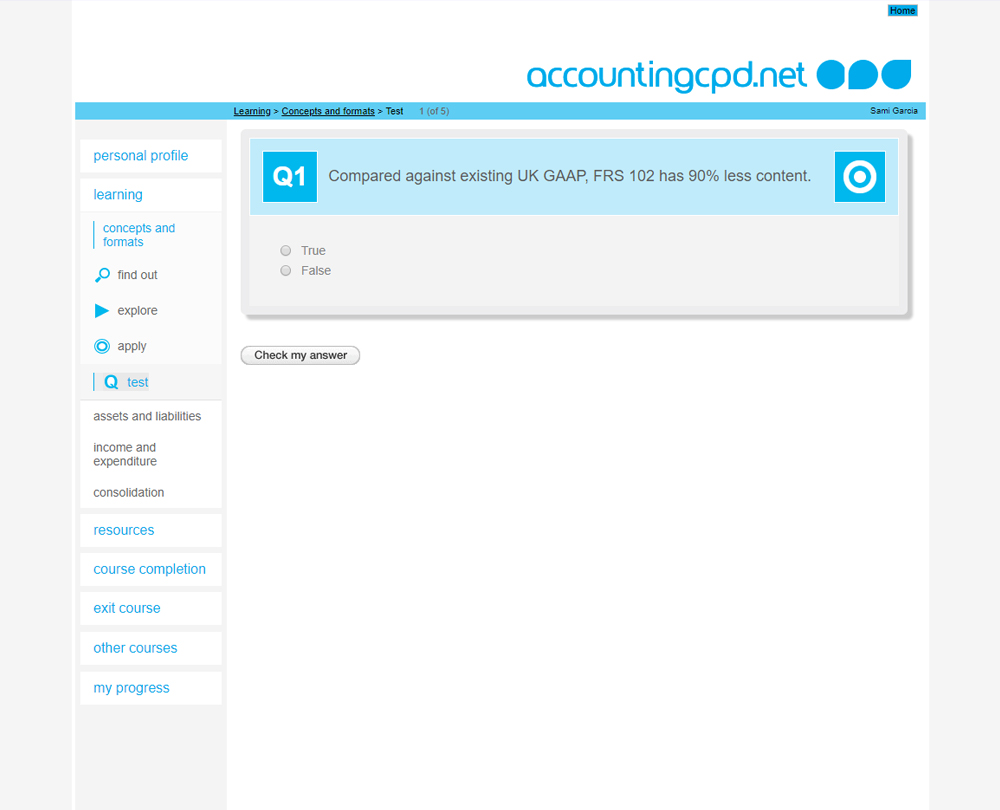FRS 102: Choosing between the alternatives
This course will help you to understand the impact of each framework on assets, liabilities, income and expenditure, so that by the end of the course you will be in a position to decide which framework best suits your organisation.
This course is not currently available
This course will enable you to
- Understand the basics of FRS 102, FRS 101, and full IFRS.
- Describe the similarities and differences between the different frameworks. li>Decide which framework is the right one for your organisation to follow.
About the course
Have you decided which of the new accounting frameworks your or your client's organisation should follow?
The removal of UK GAAP makes a decision necessary and to make it you'll need to be aware of the key differences between FRS 102, FRS 101 or full IFRS. The decision should be made based on the specific accounting situations you or your client face, as one framework won't suit all businesses.
This course will help you to understand the impact of each framework on assets, liabilities, income and expenditure, so that by the end of the course you will be in a position to decide which framework best suits your organisation.
Look inside
Contents
- Concepts and formats
- How should I approach financial reporting?
- How much guidance is provided by each reporting framework?
- What are the differences in formats and documents required by each reporting framework?
- What are the different levels of disclosures required by each reporting framework?
- What will I need to consider when transitioning?
- Assets and liabilities
- What are the requirements for financial instruments?
- What are the IFRS developments in financial instrument reporting?
- What are the different approaches to accounting for associates and joint ventures?
- How will these different approaches impact my financial statements?
- What are the different approaches to impairment?
- What do I need to know about provisions and convertible debt?
- How should I approach accounting for leases?
- Income and expenditure
- How will borrowing costs impact my reported profit?
- What are the changes to employee benefits and share based payments?
- What are the similarities and differences in accounting for deferred taxation?
- What is the impact of foreign transaction on reported profits and reserves?
- What do I need to know about the disclosure of related party transactions?
- What accounting is required for events after the reporting period?
- Consolidation
- What are the different approaches to establishing control?
- How can I approach goodwill?
- What are the consolidation exemptions?
- How do I account for acquisitions and disposals?
How it works
Reviews
You might also like
Take a look at some of our bestselling courses
This course is not currently available. To find out more, please get in touch.

